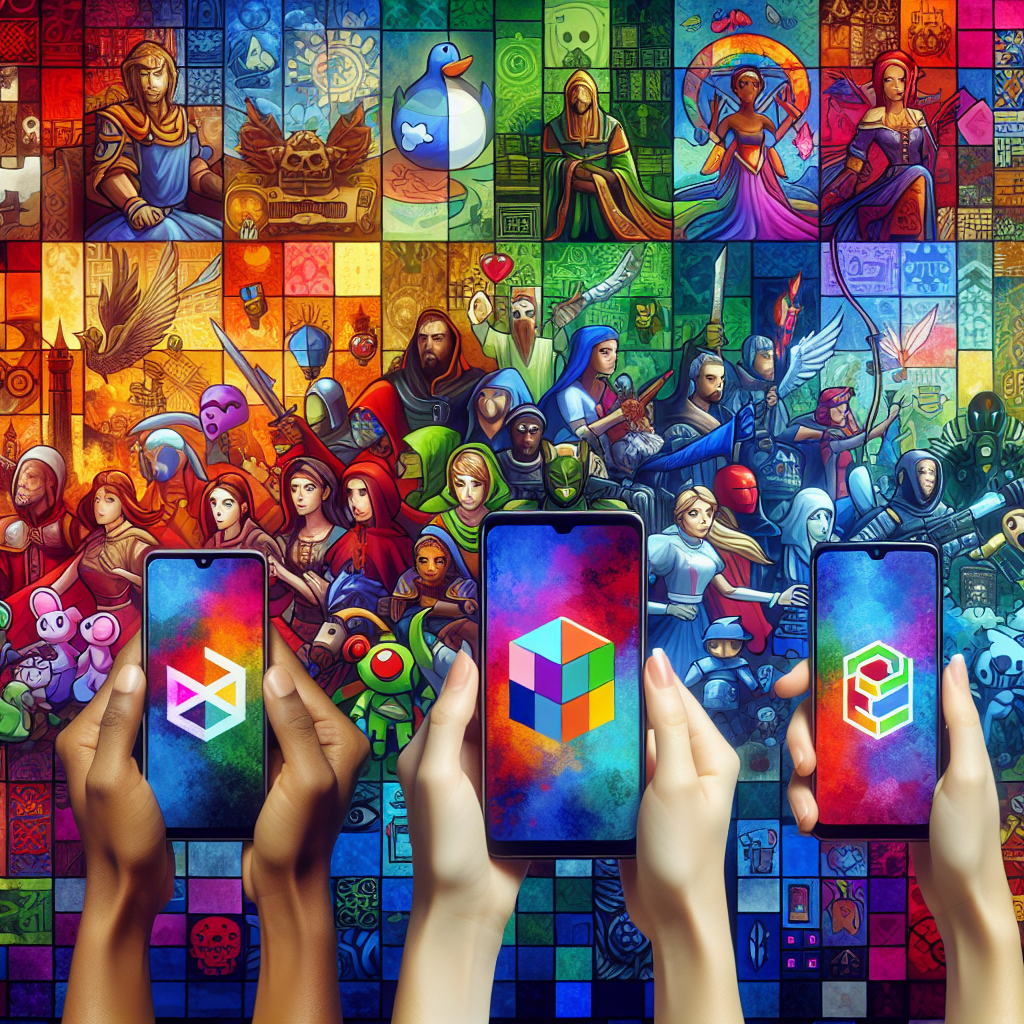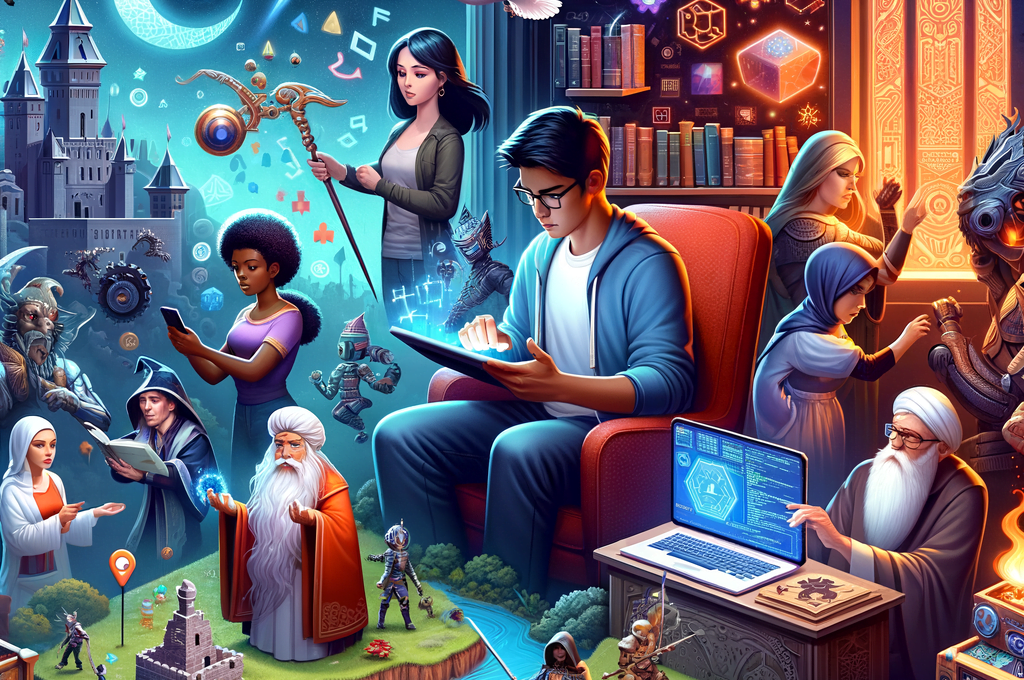
Mobile gaming has become a global phenomenon, with millions of players engaging in various games on their smartphones daily. As the industry grows, so does the importance of cultural representation within these games. Diversity in characters and themes not only enriches the gaming experience but also promotes inclusivity and understanding among players from different backgrounds. This article explores the current state of cultural representation in mobile gaming, highlighting the progress made and the challenges that remain.
The Importance of Cultural Representation in Mobile Gaming
Cultural representation in mobile gaming is crucial for several reasons. Firstly, it allows players to see themselves reflected in the games they play, fostering a sense of belonging and validation. Secondly, it educates players about different cultures, promoting empathy and reducing stereotypes. Lastly, diverse characters and themes can lead to more innovative and engaging gameplay, as developers draw inspiration from a wide range of cultural narratives.
Progress in Character Diversity
In recent years, there has been a noticeable increase in the diversity of characters in mobile games. Developers are making a conscious effort to include characters of various ethnicities, genders, and sexual orientations. For example, the popular game “AFK Arena” features a diverse cast of heroes from different cultural backgrounds, each with unique abilities and stories. Similarly, “Brawl Stars” includes characters from various ethnicities and even features a non-binary character, further promoting inclusivity.
Case Study: “Genshin Impact”
“Genshin Impact,” a widely popular mobile game, has been praised for its diverse character roster. The game features characters from different regions, each inspired by real-world cultures. For instance, the region of Liyue is heavily influenced by Chinese culture, while Inazuma draws inspiration from Japan. This cultural diversity not only enriches the game’s narrative but also allows players to learn about different traditions and customs.
Challenges in Achieving True Representation
Despite the progress made, there are still significant challenges in achieving true cultural representation in mobile gaming. One major issue is the tendency to rely on stereotypes or superficial representations of cultures. This can lead to misrepresentation and perpetuate harmful biases. Additionally, there is often a lack of diversity among game developers themselves, which can result in a limited perspective on cultural issues.
Statistics on Diversity in Game Development
According to a 2021 survey by the International Game Developers Association (IGDA), only 2% of game developers identify as Black, and 7% as Hispanic or Latino. Furthermore, women make up just 24% of the game development workforce. These statistics highlight the need for greater diversity within the industry to ensure that a wide range of cultural perspectives are represented in the games being created.
Innovative Themes in Mobile Gaming
In addition to character diversity, mobile games are also exploring innovative themes that reflect different cultural narratives. Games like “Never Alone,” which is based on Alaskan Native culture, and “Mulaka,” inspired by the indigenous Tarahumara people of Mexico, offer players a unique gaming experience while educating them about these cultures. These games demonstrate the potential for mobile gaming to serve as a platform for cultural storytelling.
Case Study: “Never Alone”
“Never Alone” is a puzzle-platformer game developed in collaboration with the Iñupiat, an indigenous people of Alaska. The game follows the story of a young Iñupiat girl and her Arctic fox companion as they embark on a journey to save their village. Through its gameplay and narrative, “Never Alone” introduces players to Iñupiat culture, including traditional stories, values, and customs. The game has been praised for its authentic representation and has won several awards for its cultural impact.
The Role of Players in Promoting Diversity
Players also play a crucial role in promoting diversity in mobile gaming. By supporting games that feature diverse characters and themes, players can encourage developers to continue creating inclusive content. Additionally, players can provide feedback to developers, highlighting the importance of accurate and respectful cultural representation. Social media platforms and gaming forums offer opportunities for players to voice their opinions and advocate for greater diversity in the industry.
Conclusion
In conclusion, cultural representation in mobile gaming is essential for creating an inclusive and enriching gaming experience. While progress has been made in terms of character diversity and innovative themes, challenges remain in achieving true representation. By fostering diversity within the game development industry and supporting inclusive games, both developers and players can contribute to a more culturally aware and empathetic gaming community. As the mobile gaming industry continues to evolve, it is crucial to prioritize cultural representation to ensure that all players feel seen and valued.
Question and Answer Section
Q: Why is cultural representation important in mobile gaming?
A: Cultural representation is important in mobile gaming because it allows players to see themselves reflected in the games they play, promotes empathy and understanding of different cultures, and leads to more innovative and engaging gameplay.
Q: What are some examples of mobile games with diverse characters?
A: Examples of mobile games with diverse characters include “AFK Arena,” which features heroes from different cultural backgrounds, and “Brawl Stars,” which includes characters of various ethnicities and a non-binary character.
Q: What challenges exist in achieving true cultural representation in mobile gaming?
A: Challenges in achieving true cultural representation include reliance on stereotypes, misrepresentation of cultures, and a lack of diversity among game developers, which can result in a limited perspective on cultural issues.
Q: How can players promote diversity in mobile gaming?
A: Players can promote diversity in mobile gaming by supporting games that feature diverse characters and themes, providing feedback to developers, and advocating for greater diversity through social media platforms and gaming forums.

